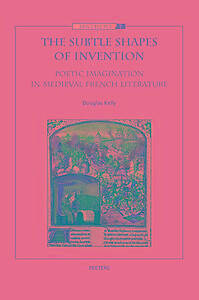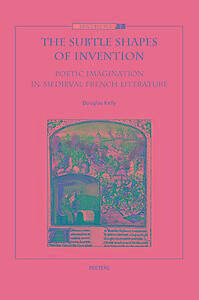
- Retrait gratuit dans votre magasin Club
- 7.000.000 titres dans notre catalogue
- Payer en toute sécurité
- Toujours un magasin près de chez vous
- Retrait gratuit dans votre magasin Club
- 7.000.0000 titres dans notre catalogue
- Payer en toute sécurité
- Toujours un magasin près de chez vous
Description
Medieval writers frequently refer to the composition of their own verse and prose works. These authorial interventions are often cryptic and partial, bringing them together, like pieces in a puzzle, reveals a coherent picture of their art of poetry and prose. However, beyond the interest of this knowledge in its own right, it is also necessary to find out how it can be used to interpret, evaluate, and appreciate the works that exemplify it. As the French art of invention emerged from the medieval Latin tradition in rhetoric and poetics, vernacular authors, from Chretien de Troyes to Christine de Pizan, adapted it to the composition of their own narratives, lyric poems, and treatises. This book brings together a number of essays that show how medieval writers in the translatio studii invented, with subtlety and imagination, diverse, original, and even compelling works that conform to their literary art. Focusing on both well known and less well known authors and works, the essays are grouped under the following topics: the art of invention, the Roman de Troie, Arthurian verse romances and the matiere de Bretagne, prose romance on the knights of the Round Table and on the Seven Sages of Rome, Occitan and Old French lyric, and late medieval allegory and the Dit.
Spécifications
Parties prenantes
- Auteur(s) :
- Editeur:
Contenu
- Nombre de pages :
- 510
- Langue:
- Néerlandais
- Collection :
- Tome:
- n° 7
Caractéristiques
- EAN:
- 9789042923607
- Date de parution :
- 21-04-11
- Format:
- Livre broché
- Format numérique:
- Trade paperback (VS)
- Dimensions :
- 160 mm x 239 mm
- Poids :
- 952 g

Les avis
Nous publions uniquement les avis qui respectent les conditions requises. Consultez nos conditions pour les avis.






